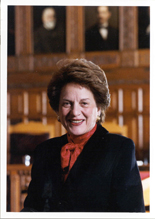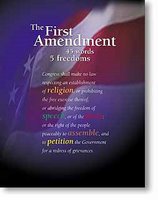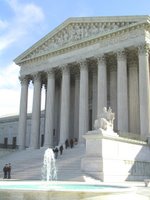 New York’s Chief Judge Judith Kaye is again speaking out on the appalling situation where our judges must go “hat in hand” to the legislature to get paid a decent wage. This comes fresh on the heels of Simpson Thacher’s decision to give rookie associates $160,000 plus a $30,000 bonus, a decision followed by other firms.
New York’s Chief Judge Judith Kaye is again speaking out on the appalling situation where our judges must go “hat in hand” to the legislature to get paid a decent wage. This comes fresh on the heels of Simpson Thacher’s decision to give rookie associates $160,000 plus a $30,000 bonus, a decision followed by other firms.
In a front page article in the New York Law Journal, Judge Kaye calls for,
“an end to the inequity and injustice of our so-called system of compensation that requires New York state judges every five, or six or seven or eight or, now, nine years to come, hat in hand, on bended knee to beg and plead with our partners in government even for a cost of living increase.”
New York’s Supreme Court judges (our trial court) now start at $136,700. I don’t know how we can possibly recruit the best and the brightest based on that. Hopefully, the combination of Eliot Spitzer’s push for reform with the constant efforts of Chief Judge Kaye will help to get things done.
When I go to Albany to lobby in a few months with the New York State Trial Lawyers Association, as I do each year on issues related to personal injury law, this will once again be on the agenda. As it is every year. It is in every one’s best interest.

